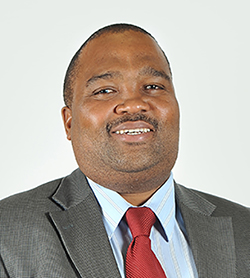

Greetings to everyone
I trust that you and your families are well and keeping safe. I am pleased to update you on the NWU Council's work during this unusual and unpredictable time. The NWU Council held its scheduled meeting virtually on 28 July 2020. This meeting was preceded by the Council workshop on Monday, 27 July.
The workshop is held annually to review the Council's performance and compliance with relevant policies including the Higher Education Act and the NWU Statute. During the workshop, we focused on the following:
- I updated Council members regarding developments and current matters relating to governance at South African universities as well as the implications thereof on the NWU Council and its committees.
- Management shared the NWU Digital Business Strategy with Council. Council was satisfied that management was on the right path in terms of positioning the university to take advantage of opportunities presented by the Fourth Industrial Revolution.
- Representatives from the Department of Higher Education and Training (DHET) shared the government's position and plans on student funding as well as the role of university councils. They also shared feedback on the NWU Governance Scorecard of 2019 and expressed satisfaction with NWU Council's performance.
- Council was satisfied that it is fulfilling its fiduciary and oversight role on matters of strategy, approval of policies, performance management and engagement with stakeholders.
 |
The first term of office of the vice-principal, Prof Linda du Plessis, will expire by effluxion of time on 30 August 2020. Council reappointed Prof Linda du Plessis, Deputy Vice-Chancellor (DVC): Planning and Vanderbijlpark Campus Operations, as vice-principal for the period 1 September 2020 to 30 August 2023. Prof Du Plessis has been successfully fulfilling this role since 1 January 2019. We appreciate Prof Du Plessis for her performance in the role of vice-principal and wish her all the success in continuing to serve the university in this role. |
|
I am convinced that her appointment will ensure that the NWU continues with its excellent work towards its growth and long-term sustainability. |
|
|
The first term of the executive director for finance and facilities, Ms Elmarie de Beer, will come to an end on 30 June 2021. Council reappointed Ms De Beer for another four years, until June 2025. Council expressed its appreciation to Ms De Beer for the work she has done during her first term and congratulated her on her reappointment. I am convinced that her appointment will ensure that the NWU continues with its excellent work towards its growth and long-term sustainability. |  |
 |
Prof Dan Kgwadi, the vice-chancellor and principal, presented the university's performance regarding teaching-learning, research and innovation and community engagement. It is worth noting that:
|
|
|
| We noted management's report regarding progress made at various levels of operation to mitigate the threats and challenges posed by Covid-19 while ensuring optimisation of relevant business processes. We are satisfied that management is doing everything possible to safeguard the successful continuation of the academic year. Council Exco will continuously monitor the situation and advise or intervene accordingly when necessary. |  |
 |
The following policies and rules were approved and will shortly be available here:
|
During our meeting on 28 November 2019, we resolved as follows:
|
 |
|
During our meeting of 28 July 2020, we received recommendation from the Honorary Naming Committee and approved that the leopard statue at the Mahikeng Campus be relocated to a suitable place on the campus. We also took note of the extensive consultation process which was followed as well as the results of the survey with regard to the new artwork that will be constructed on all three campuses. We agreed that the implementation of both projects should proceed, taking into account the stakeholders' preference. View the approved artwork here. |
|
 |
We approved the changed admission requirements for 2022 for the faculties of Economic and Management Sciences, Health Sciences and Humanities. These changes will be included in the year books. We further approved that a technology requirement for admission of first-year entrants to an academic programme at the NWU be added to the 2021 year books of all faculties. This entails that being in possession of a laptop or an equivalent device to allow a student to participate in learning and assessment activities will be compulsory and an admission requirement for first-time entrants to all qualifications and programmes as from 2021. |
|
Council is ultimately responsible for the preparation, integrity and objectivity of the consolidated financial statements and related financial information. It has to ensure that the statements are a fair representation of the activities of the university at the end of the financial year. In order to meet this responsibility, Council relies on management, and its Audit, Risk and Compliance Committee, the Finance Committee, and the internal auditors of the university. Both the internal and external auditors have unrestricted access to all documents, minutes, records and information, and no limitations have been placed on the audits. |  |
|
We are satisfied that the consolidated financial statements comply with International Financial Reporting Standards (IFRS) including full and responsible disclosure in accordance with the university's accounting policies, and in the manner required by the Minister of Higher Education and Training in terms of Section 41 of the Higher Education Act, 1997 (Act No. 101 of 1997 (as amended)). We approved the consolidated financial statements as well as the financial overview for the year ending 31 December 2019. We are pleased that PWC, the external auditors, have confirmed the NWU's prudent financial oversight and management by issuing an unqualified audit opinion. | |
 |
The biggest challenge for the NWU and the higher education sector as a whole in the months or even years to follow is the successful management of the current uncertainties that the Covid-19 pandemic brings and to adapt to rapidly changing circumstances. The possible financial impact will undoubtedly be significant and all resources must be applied with great caution. Further pressure will definitely be added by the weakened global South African economy and the current conditions that are experienced by almost all sectors. |
| The main focus is on cash flow management and to minimise the negative financial impact by implementing a mitigation plan for the short and medium term (2020-2024). Due to the fluidity of the situation, general assumptions were used in creating various scenarios including financial risk factors and based on these, the financial impact was calculated for each scenario. We took note of the mitigation plan and we are satisfied with the measures put in place to address the risks. We noted that planned infrastructure projects are currently under revision as part of the three-year rolling plan that should feed into the new budget process, in order to keep our cash flow healthy for the medium term, while balancing it with the need to participate in economic growth locally and nationally. Council stressed the fact that decisions taken now must ensure the university's long-term financial sustainability. Thus, we approved the university's handling of financial matters under the current circumstances but emphasised that should there be any significant changes or deviations, Council must be consulted regarding the adjusted plan. | |
|
The Regulations for Reporting by Public Higher Education Institutions (GG37726, 9 June 2014) determine that the Annual Integrated Report must be recommended by the Audit, Risk and Compliance Committee to Council for approval. This process was finalised and Council approved the 2019 Annual Integrated Report for submission to the DHET on 31 July 2020. We appreciate the determination and dedication of all involved in the compilation of the report. The stakeholder version of the report will be made available on the university's website as soon as it has been finalised. |
 |
 |
We approved, in principle, the handling of this matter as part of the measures put in place to mitigate risks under the current circumstances. Management will address the issue further. Vacant positions Taking into consideration the current lockdown due to Covid-19, we approved a few interventions including the following: |
We approved, in principle, management's plans to address employment-related costs. | |
|
We noted the planned Organisational Citizenship Behaviour Project (OCBP) that will be launched by management. The project aims to support the creation of a new NWU culture for both staff and students. |  |
We are encouraged by the progress made in ensuring that the work of the university continues during this lockdown period. Let me take this opportunity to thank all of you (Council members, management, staff and students) for your continued contribution to the NWU. Please take care and keep safe.
Kind regards
Dr MB Tyobeka
Chairperson: NWU Council
| For more information please contact Amanda van der Merwe. |